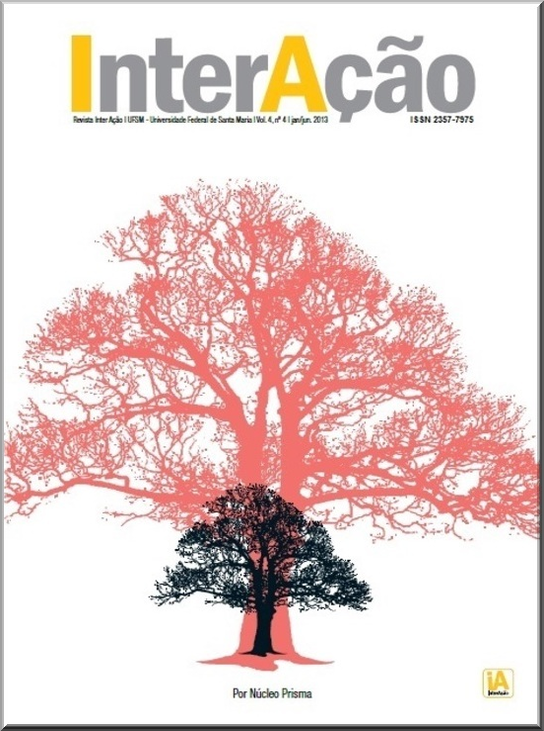Corrupção e Investimento Estrangeiro Direto
DOI:
https://doi.org/10.5902/2357797512741Keywords:
Globalization. Corruption. Foreign Direct Investment. InstitutionsAbstract
This research aims to analyze the impact of corruption in the $ow of foreign direct investment (FDI). The first part of the research studies the role of FDI in the global economy; the second examines the consequences of corruption in transactions involving FDI. For this purpose, we carried out a bibliographic review on the subject. The stage of the research indicates that the perception of corruption can be a conditioning factor for the inflow of FDI in a particular country.
Downloads
References
AMAL, Mohamed; SEABRA, Fernando. “Determinantes do Investimento Direto Externo (IDE) na América Latina: uma Perspectiva Institucional”. In: EconomiA, Brasília, v. 8, n. 2, 2007, pp. 231-247.
ARNAUD. André-Jean. O Direito Entre Modernidade e Globalização: lições de filosofia do direito e do Estado. Rio de Janeiro: Renovar, 1999.
ARRIGHI, Giovanni. O Longo Século XX: Dinheiro, Poder e as Origens de Nosso Tempo. Rio de Janeiro: Contraponto, 1998.
BÉNASSY-QUÉRÉ, A.; COUPET, M.; MAYER, T. “Institutional Determinants of Foreign Direct Investment”. In: World Economy, New Jersey, v. 30, n. 5, s/d. pp. 764-782.
BRITISH BROADCASTING CORPORATION (BBC). China Expands Anti-corruption Law. 12.07.2011. Disponível em: http://www.bbc.co.uk/news/10595981. Acesso em: 05 de agosto de 2012.
__________. Indian PM Singh appeals for anti-corruption bill. 23.03.2012. Disponível em: http://www.bbc.co.uk/news/worldasia-india-17484998. Acesso em: 05 de agosto de 2012.
COOTER, Robert D.; SCHÄFER, Hans-Bernd. “O Problema da Desconfiança Recíproca”. In: The Latin American and Carribean Journal of Legal Studies, Berkeley, v. 1, n. 1, 2006, pp. 01-19.
DAUDE, Christian; STEIN, Ernesto. “The Quality of Institutions and Foreign Direct Investment”. In: Economics & Politics, Oxford, v. 19, n. 3, 2007, pp. 317-344.
DUNNING, John H.; LUNDAN, Sarianna M. Multinational Enterprises and the Global Economy. 2. ed. Cheltenham: Edward Elgar Publishing, 2008.
GLOBERMAN, Steven; SHAPIRO, Daniel. “Global Direct Investment Flows: The Role of Governance Infrastructure”. In: World Development, Amsterdã, v. 30, n. 11, 2002, pp. 1899-1919.
HABIB, M.; ZURAWICKI, L. “Country-level Investments and the Effect of Corruption”. In: International Business Review, Amsterdã, v. 10, s/d. pp. 687-700.
KAUFMANN, Daniel; KRAAL, A.; ZOIDO-LOBATÓN, P. Aggregating Governance Indicators. Policy Research Working Paper. New York: World Bank, 1999.
LI, Quan; RESNICK, Adam. “Reversal of Fortunes: Democratic Institutions and Foreign Direct Investment Inflows to Developing Countries”. In: International Organizations, Cambridge, v. 57, 2003, pp. 175-211.
MAURO, Paolo. “Corruption and Growth”. In: Quarterly Journal of Economics, Oxford, v. 110, n. 3, 1995, pp. 681-712.
__________. “The Effects of Corruption on Growth, Investment, and Government Expenditure: A Cross-Country Analysis”. In: ELLIOTT, Kimberly Ann (org). Corruption and the Global Economy. Washington: Institute of International Economics, 1997. pp. 83-107.
MUDAMBI, Ram; NAVARRA, Pietro. “Institutions and International Business: a Theoretical Overview”. In: International Business Review, Leiden, v. 11, 2002, pp. 635-646.
NORTH, Douglass. “Institutions”. In: Journal of Economic Perspectives, Nashville, v. 5, n. 1, 1991, pp. 97-112.
NUNNEMKAMP, Peter; SPATZ, Julius. “Intellectual Property Rights and Foreign Direct Investment: a Disaggregated Analysis”. In: Review of World Economics, Leibniz, v. 140, n. 3, 2004, pp. 393-414.
ORGANISATION FOR ECONOMIC CO-OPERATION AND DEVELOPMENT. Foreign Direct Investment for Development: Maximising Benefits, Minimising Costs. Paris: OECD publications service, 2002.
PRICEWATERHOUSECOOPERS. Confronting Corruption: The Business Case for an Effective Anti-corruption Programme (2008). Disponível em: http://www.pwc.com/th/en/publications/comfronting-corruption.jhtml. Acesso em: 10 de dezembro de 2011.
RIA NOVOSTI. Russia Medvedev signs landmark anticorruption law. 04.05.2011. Disponível em: http://en.rian.ru/russia/20110504/163854280.html. Acesso em: 05 de agosto de 2012.
RICARDO, David. Princípios de Economia Política e Tributação. São Paulo: Nova Cultural, 1996.
ROSE-ACKERMAN, Susan. “The Political Economy of Corruption”. In: ELLIOTT, Kimberly Ann (org). Corruption and the Global Economy. Washington: Institute of International Economics, 1997. pp. 31-60.
SHLEIFER, Andrei; VISHNY, Robert W. “Corruption”. In: The Quarterly Journal of Economics, Oxford, v. 108, n. 3, 1993, pp. 599-617.
SMARZYNSKA JAVORCIK, B. “The Composition of the Foreign Direct Investment and the Protection of Intellectual Property Rights: Evidence from Transition Economies”. In: European Economic Review, Amsterdã, v. 48, 2004, pp. 39-62.
SORNARAJAH, M. The International Law of Foreign Investment. 3. ed. Cambridge: Cambridge University Press, 2010.
TANZI, Vito. “Corruption Around the World: Causes, Consequences, Scope and Cures”. In: IMF Staff Papers, Washington, v. 45, n. 4, 1998, pp. 559-594.
TRANSPARENCY INTERNATIONAL. Bribe Payers Index 2008. Berlim: Transparency International, 2008.
__________. Relatório global de corrupção 2009: A corrupção e o setor privado. Cambridge: Cambridge University Press, 2009.
UNITED NATIONS. World economic and social survey 2005: financing for development. New York: United Nations publication, 2005.
WEI, Shang-Jin. “Corruption and Globalization”. In: Brooking policy brief series, n. 79, abr., 2001. Disponível em: http://www.brookings.edu/papers/2001/04corruption_wei.aspx. Acesso em: 11 de dezembro de 2011.
__________. “How Taxing is Corruption on International Investors?” In: The Review of Economics and Statistics, Massachusetts, v. 82, n. 1, 2000a, pp. 1-11.
__________. “Negative alchemy? Corruption and Composition of Capital Flows”. In: OECD development centre working paper, n. 165, 2000b. Disponível em: http://www.oecd.org/dataoecd/49/16/2072209.pdf. Acesso em: 11 de dezembro de 2011.
WEITZEL, Utz; BERNS, Sjors. “Cross-border Takeovers, Corruption and Related Aspects of Governance”. In: Tjalling C. Koopmans Research Institute Discussion Paper, n. 06-03, 2006. Disponível em: http://SSRN:http://ssrn.com/abstract=909546. Acesso em: 11 de dezembro de 2011.
WORLD BANK. Helping Countries Combat Corruption: The Role of World Bank. Washington: World Bank, 1997.
WORLD COMISSION ON THE SOCIAL DIMENSION OF GLOBALIZATION. A fair globalization: creating opportunities for all. Genebra: International Labour Office, 2004.







